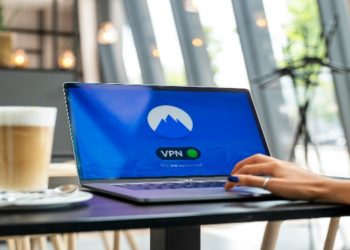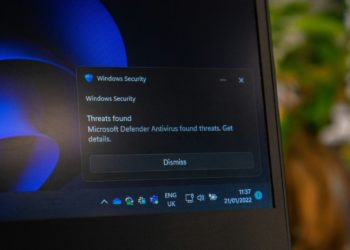Technology has improved at a phenomenal rate over the past two decades, revolutionising the way that we all work and play. As well as improving our lives and streamlining business, technological advancements have also given criminals new avenues to commit fraud and scams.
In this article we take a close look at the world of cyber security, covering exactly what it is and how it can help you and your business to ward off the threat posed by cyber criminals. Read on to find out everything you need to know about cyber security and why companies like Perimeter 81 are proving so popular with security savvy online businesses.
Cyber Crime: What, How & Why
“Crime that is committed using the Internet, for example by stealing someone’s personal or bank details or infecting their computer with a virus.”
That’s the definition in the Oxford English dictionary for cybercrime and its pretty much spot on. Cybercrime is committed exclusively online and it usually involves criminals gaining access to private information and either using that to directly steal or to hold an individual or business to ransom.
Cybercrime doesn’t necessarily always have to be done for financial gain. In some cases, it can be committed to tarnish the reputation of a company or make some form of political statement.
How it is carried out differs from crime to crime, but usually hackers gain access to company’s data by targeting the weakest part of their security systems – their workers.
Remote workers in particular, who connect to work programs and apps from unsecure networks offer up a weak underbelly of attack for cyber criminals.
How to Defend Against Cyber Crime
The rise of cybercrime over the past decade has led to a thriving cyber security industry that offers individuals and organisations tried and tested ways to protect their networks and systems.
Earlier this year, the cyber security industry was valued at an estimated $173.5 billion with projections for an increase to $266.2 billion by 2027.
What are the different types of protection on offer to large businesses? Below we have compiled some of the most common:
Virtual Private Networks (VPNs): If you’ve listened to a podcast in the last five years or read online articles, chances are you’ve seen hundreds of adverts for VPNs. Originally marketed to individuals as a way to bypass geographical controls and watch multimedia content from abroad, VPNs are now being used to protect business networks.
In layman’s terms, they work by providing a secure ‘tunnel’ between a user’s device, their internet connection and the work programs and apps they are accessing. They are easy to use and widely available but they are the most basic form of online protection available.
Identity and Access Management (IAM): The next step up from a VPN is an IAM security system which has all the benefits of a VPN along with a host of extra features. Extra layers of password protection and authentication are required to offer an increased level of security.
In addition to that, IT managers can used an IAM system to monitor the activities of users, which allows them to be on the lookout for suspicious behaviour.
Privileged Access Management (PAM): This security system gives users basic access to the programs and apps that they use on a daily basis. In order to gain access to less frequently used programs, users will have to complete a series of authentication procedures.
These privileged access points are set by the controller and can be regularly updated.
Software Defined Perimeter (SDP): This cloud based security system operates on context, allowing users to access programs related to their daily activities. If, for example, a remote working accountant operates on a SDP they will be able to access all their accounting tools in addition to perhaps, customer specific history and data.
Zero Trust Network Access (ZTNA): The Fort Knox of online security systems, ZTNA operates on the principle of least privilege. To use the above analogy, a remote working accountant will only be able to access the programs or apps that they have been cleared to use.
The system will not allow them to access other data, if they want to do that, they will have to ask the IT manager for direct permission. In addition to that, ZTNAs also use context to determine whether users can access programs.
If for example, you attempt to access a spreadsheet whilst on holiday abroad, the system will detect your location and block access. Likewise, if you want to look at something outside of your usual working hours, you may find yourself unable to do so.
Is One Security System Better Than Another?
Yes, but it is context specific. If you are a small business owner not dealing with huge amounts of sensitive, private data then a basic VPN may be the best security system for your needs. If however, you are the IT manager of a large accounting firm you may find that a ZTNA is the best fit for your business needs.
Ultimately, it all comes down to your business’ specific demands and budget. The only way that you will lose out is if you opt not to implement a security system at all, that way you’re leaving yourself completely open to cyber criminals.



![7 Best POS Software in the UK [2026 Edition]](https://todaynews.co.uk/wp-content/uploads/2026/02/7-Best-POS-Software-in-the-UK-2026-Edition-360x180.png)























































![7 Best POS Software in the UK [2026 Edition]](https://todaynews.co.uk/wp-content/uploads/2026/02/7-Best-POS-Software-in-the-UK-2026-Edition-350x250.png)
















